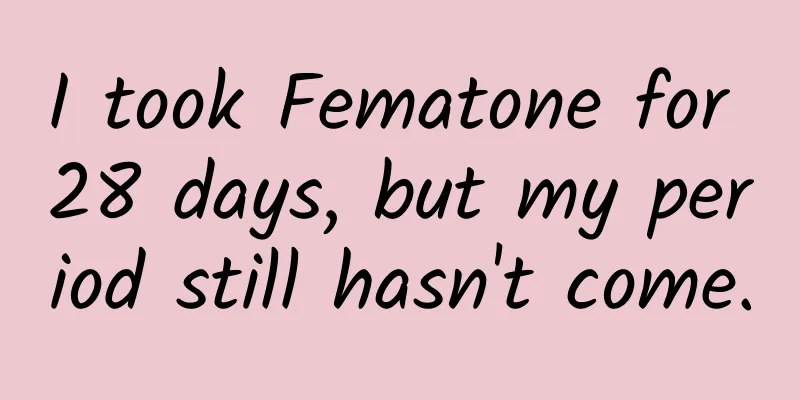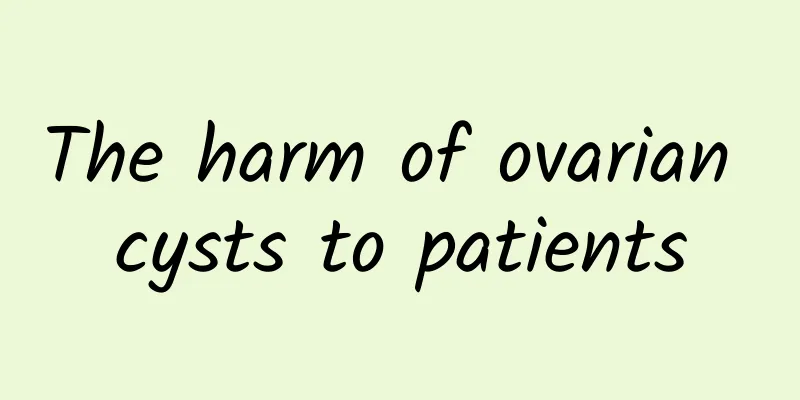I took Fematone for 28 days, but my period still hasn't come.

|
If menstruation does not come after taking Femoston for 28 days, it may be related to intrauterine adhesions, short medication withdrawal time or pregnancy. Different reasons require different treatments. 1. Intrauterine adhesions may be a reason. Some women may experience intrauterine adhesions after artificial abortion or other intrauterine operations. In this case, the endometrium cannot proliferate and secrete normally, resulting in no endometrial exfoliation and no menstruation. Just like a blocked water pipe, the water cannot flow smoothly and naturally cannot be discharged normally. 2. Short medication withdrawal time is also a common reason. After taking Fentaton continuously, if the medication is not stopped in time, the hormone level in the body may be high. In this case, due to the lack of the withdrawal effect of estrogen and progesterone, the endometrium will not be exfoliated, and there will be no menstruation. It is like a kettle that is continuously heated, the water temperature remains high and cannot be cooled and condensed. 3. Pregnancy is also a situation that needs to be considered. Some women may become pregnant if they do not take contraceptive measures during the medication period. After pregnancy, there will naturally be no menstrual cramps. Just like the seeds have sprouted, the soil no longer needs to be renewed every month. For these situations, it is recommended to check and treat them under the guidance of a doctor. Gynecological ultrasound examinations can be used to understand the condition of the uterine cavity and endometrium, check hormone levels to confirm whether there is a high hormone level, and also to determine whether pregnancy is present. Through these auxiliary examinations, doctors can make a clear diagnosis and develop further treatment plans. If you are experiencing similar situations, do not adjust the dosage of medication or stop taking medication on your own. Professional medical advice and examination are the key to solving the problem. Maintaining good living habits, proper diet and moderate exercise can also help the body restore normal menstrual cycles. Remember, a healthy body requires our careful care. |
<<: When is the best time to have medical abortion?
>>: Which is more serious, uterine fibroids or cysts?
Recommend
The causes of multiple uterine fibroids and the harm of multiple uterine fibroids
What is the cause of multiple uterine fibroids? T...
Experts introduce the symptoms of senile vaginitis
Vaginitis is a common gynecological disease. In l...
Does lower body obesity mean a crooked pelvis?
Q: Does obesity in the lower body really mean a “...
Treatment options for patients with chronic adnexitis
Chronic adnexitis has a long course and a long tr...
How to avoid premature ovarian failure
How to avoid premature ovarian failure? With the ...
Prevent chest expansion! 3 moves to shape firm and beautiful breasts
By bringing the shoulder blades closer together, ...
What is the main cause of vulvar leukoplakia?
Vulvar leukoplakia is a common gynecological dise...
What are the symptoms of cervical erosion?
If you want to cure cervical erosion better, you ...
How to treat irregular menstruation? Is delayed menstruation a symptom of irregular menstruation?
What should I do if I have irregular menstruation...
Do you know what symptoms will appear if you have vaginal candidal infection?
Do you know what symptoms will appear if you get ...
Can patients with uterine fibroids eat seafood?
Patients with uterine fibroids often ask, can pat...
How to identify chocolate cysts and what are the hazards of chocolate cysts?
With the increasing pressure of life, more and mo...
What is the chance of pregnancy with cervical erosion 3rd degree
What is the chance of pregnancy with cervical ero...
What does it feel like when you first discover uterine fibroids? What are the symptoms of uterine fibroids at the beginning?
What does it feel like when you first discover ut...
"Pressing the instep" can slim your calves! Xiaohongshu's popular slimming training, you can get straight and slender fairy legs in just one month
If you want a pair of straight and slender fairy ...









